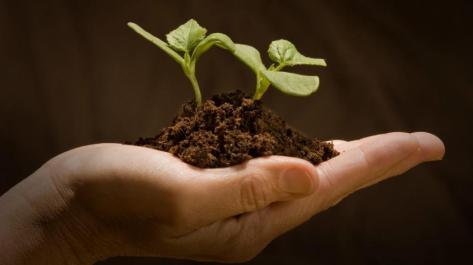Message From the Pastor - A Journey Toward Creation Care

This spring, Northfield UMC is engaging deeply with the sacred responsibility of Caring for Creation through our worship and educational series, “What Then Should We Do?” (John 3:10). Grounded in scripture, science, and faith, this series explores how we, as followers of Jesus, are called to tend the earth with compassion, wisdom, and hope.
Each week, we’ll reflect on a different theme—from our creatureliness and connection to creation, to the face of loss and challenge, to the path of engagement and action. Along the way, we’ll learn from notable guest speakers—climate scientists, eco-theologians, spiritual formation leaders, and advocates—who help us explore both the grief and the grace present in this moment of ecological urgency.
I’ll admit: I’m still growing in this area. The climate crisis can feel overwhelming, and the pace of change can be hard to face. But this series reminds us that we don’t have to know everything to begin. We begin by listening—to God, to the voices of those most impacted, and to the sacredness of the earth beneath our feet.
Our sacred stories remind us that creation is not a commodity to be used, but a sacred relationship to be honored. We are not separate from the earth—we belong to it. Climate change, biodiversity loss, and environmental injustice are not distant or abstract issues. They are deeply spiritual concerns that challenge us to listen: to God, to one another, and to the cries of creation itself.
Psalm 23 offers the enduring promise that God is with us even in the darkest valleys. In John 10, Jesus describes himself as the Good Shepherd who knows us, calls us by name, and leads us to abundant life. These scriptures remind us that we are not alone— in our sorrow, our questions, or our efforts to care.
Caring for creation isn’t just about individual actions—it’s about spiritual transformation. It’s about learning to live in right relationship with the earth and with one another. As Bishop Sally Dyck has said, “Creation care is not an add-on to our faith. It’s a fundamental expression of our discipleship.”
In other words, faithful response includes tangible action. In The Climate Action Handbook, Dr. Heidi A. Roop offers 100 simple, science-based steps we can all take. One example: Try reducing food waste by planning your meals and shopping intentionally. Nearly 40% of food in the U.S. goes uneaten—and cutting back on waste is one way individuals can lower their carbon footprint and honor the resources of creation.
I invite you to journey with us as we wrestle with the big questions, lean into hope-in-action, and seek to live faithfully in the midst of a changing world. For details on speakers and topics, see page 5 or visit northfieldumc.org/caring-creation.
Blessings,
Donna
P.S. If you’ve missed any of the Sunday morning messages, you can watch online at northfieldumc.org.
